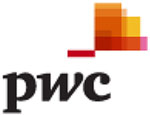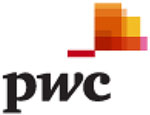eReaders, tablets expected to push ink, paper out of the publishing market

Publishers, Internet bookstores and companies that manufacture eReaders have high expectations of the digital future of the book industry according to PwC's report, Turning the Page: The Future of eBooks. The survey focuses on opportunities for the digital distribution of newspapers and magazines through tablets, such as the Apple iPad.
While some herald the advent of digital technology as an opportunity to open new target markets and create customers, others mourn the end of traditional books and doubt the industry will be able to retain control over pricing and content.
Critical mass
"Digital publishing appears to be reaching critical mass," says Vicki Myburgh, South African Entertainment & Media Industry leader for PwC. "Media coverage and extensive reporting on eBooks and eReaders have given most consumers a basic understanding of the digital technologies. They don't, however, truly understand the larger concepts behind digital publishing and the advantages of reading digital books over paper ones."
The discussion around the viability and success of eBooks is not new. In recent decades, there have been talks to assess whether eBooks will overtake printed books in terms of popularity. Following the success experienced by music, newspapers, magazines, television and radio, the digital transformation has now also caught up with the book industry.
"The progress toward a digital publishing industry is moving quite significantly as technical development and sophistication of reading devices provides an experience similar to that of reading an actual book. The increasing penetration of the Internet is significantly changing reading patterns and reading behaviour," continues Myburgh.
Make content available on multimedia
Publishers, bookstores and device managers should also take the opportunity to provide the market with innovative products before they are pushed out of the market. Similarly, authors should explore opportunities for digital distribution and support publishers in their efforts to publish content.
In the future, publishers should position themselves as content providers and not simply suppliers of physical books. They will have to make content available on multiple media, in multiple formats on multiple platforms. Interestingly, this content need not be limited to the text of the book itself - it may include audio, video as well as games and lead to incremental revenue.
Failure to re-strategise and adapt to these changes could push traditional bookstores out of the expanding market for digital content. Traditional bookstores will need to emphasise their strengths in terms of customer knowledge, customer retention as well as competence, and distribute content in all formats and via a number of channels.
The trend
According to the survey, eBooks and printed books will co-exist. Even though consumers prefer to hold a book and thumb through the pages, this appears to be an insignificant factor. On the other hand, experts are less optimistic with regard to printed newspapers and periodicals. Tablets such as the iPad will ensure that newspapers and periodicals can be displayed attractively in digital form and can be purchased as part of a subscription thanks to integrated Internet access.
However, whether multifunction tablet devices such as the iPad will push eReaders out of the market has yet to be established. Tablets and eReaders are still in the early stages of development and will undergo significant changes. Experts believe the devices will merge as the trend is clearly heading for more usability and connection to mobile networks and colour.
Source: PricewaterhouseCoopers

PwC firms provide industry-focused assurance, tax and advisory services to enhance value for their clients. More than 161 000 people in 154 countries in firms across the PwC network share their thinking, experience and solutions to develop fresh perspectives and practical advice.
Go to: http://www.pwc.comRelated
SA and Daily Maverick dominate Wan-Ifra Digital Awards Africa 2025 finalists 2 Apr 2025 Invitation to young professionals to join IAB Bookmarks Learner Jury 26 Feb 2025 IAB South Africa collaborates with ARB to launch the first Content Creator Charter 11 Oct 2024 Bizcommunity named #Bookmarks2024 Best Publisher 16 Aug 2024 Bizcommunity: Finalist in 2 IAB Bookmark Awards categories 15 Jul 2024 Media24 digital publishing audience dips in April 22 May 2024






















